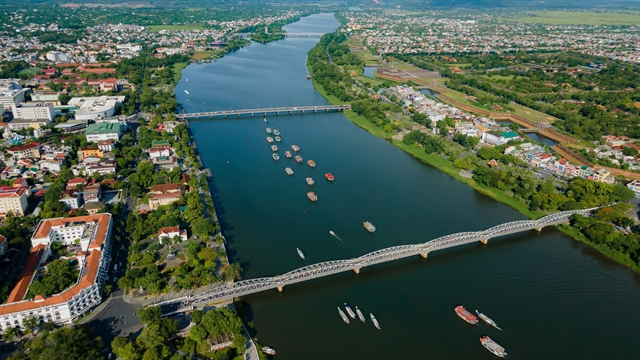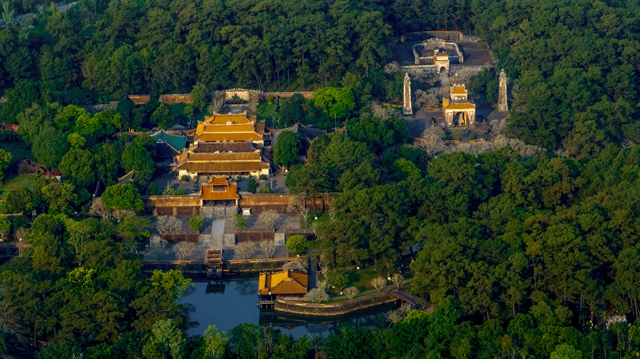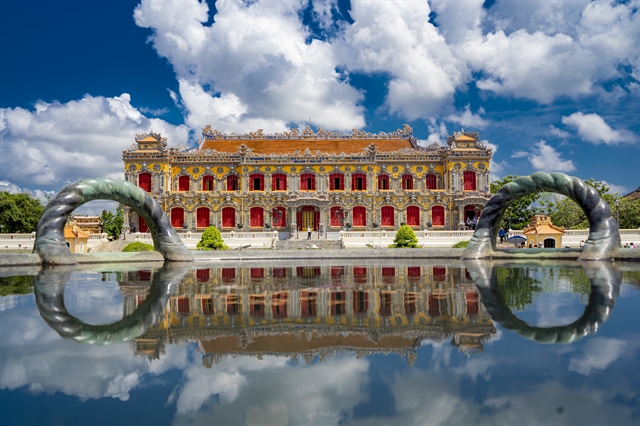 Society
Society
.jpg)

|
| A view of Huế City on the banks of Hương River. The central Thừa Thiên-Huế Province plans to be a centrally-run locality in 2025. Photos courtesy of Thừa Thiên-Huế Province |
THỪA THIÊN-HUẾ — The Government has approved a territorial plan proposed by the central province for the establishment of a centrally-run locality.
The plan covers a total area of 4,947.11sq.km, including 266.46sq.km of urban space in and around Huế City.
According to the provincial People's Committee, the proposal will serve as the foundation for the Government's submission of the plan to the National Assembly, with final approval for the centrally-run status expected in October.
The Master Plan aims to elevate Thừa Thiên-Huế Province to a first-class urban area and a key locality under central Government management by 2025, with development goals extending to 2045 and a vision for 2065.
The province also noted that the Prime Minister has established a State-owned assessment council to expedite the completion of all legal frameworks and standards required for central governance by 2025.

|
| Tomb of Tự Đức King under the Nguyễn Dynasty in Huế City has been preserved from 1867. It's one of the most favoured destinations for lovers of history, culture and architecture in the locality. |
The Master Plan includes the establishment of two new inner districts Phú Xuân and Thuận Hoá along with the core zone of Huế City, which will collectively house a population of 500,000.
According to the local authority, three towns of Phong Điền, Hương Thuỷ, and Hương Trà will be developed as satellite townships, while four other districts of Phú Vang, Quảng Điền, A Lưới, and Phú Lộc-Nam Đông are included in the future Master Plan.
The province is being positioned as a key urban area and an economic powerhouse in central Việt Nam, in addition to serving as a unique cultural heritage centre in Southeast Asia.
The province aims to attract substantial investments in ‘smart’ infrastructure, tourism, heritage, and nature conservation, positioning Thừa Thiên-Huế as a ‘must-visit’ destination, home to the richest UNESCO-recognised world heritage sites and the largest lagoon ecological system in ASEAN.
Thừa Thiên-Huế boasts rich biodiversity, including the wetland system of the Tam Giang-Cầu Hai Lagoon, which spans 21,600ha of aquatic space—48 per cent of the country’s total lagoon area—alongside 68km of coastline.
The inner urban centre will run along the Hương River, connecting new urban areas in the northwest and southeast, and linking to key zones like the Chân Mây-Lăng Cô Economic Zone and the Phong Điền Industrial Zone.

|
| An old palace is restored in the central Thừa Thiên-Huế Province. The provincial Monument of Huế Imperial City was recognised as an UNESCO world heritage. |
The central province has partnered with Facebook to launch a comprehensive programme aimed at supporting its development into a 'smart' city, enhancing its e-government capabilities, and advancing a digital transformation project in collaboration with local software giant FPT Group.
Currently, five centrally-run localities include Hà Nội, HCM City, Hải Phòng, Đà Nẵng, and Cần Thơ. Additionally, Thừa Thiên-Huế, Bắc Ninh, and Khánh Hoà have been identified as future central-governance urban areas in the 2021-2030 plan. VNS